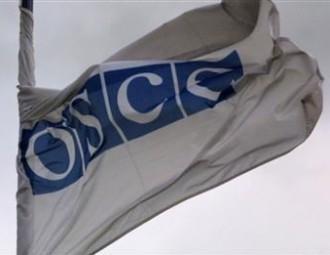ODINR OSCE delegation is on a visit to Belarus

The delegation arrived in Minsk on March 5 and scheduled a number of meetings with the representatives of Belarusan authorities, political parties as well as Belarusan journalists.
The delegation has election advisers Tatyana Bogussevich and Lusine Badalyan as its members, reports BelaPAN. On Tuesday, the delegation was scheduled to meet with leaders of the Belarusian Association of Journalists.
The same day the delegation will meet with Aliaksandr Zazulia, chairman of the House of Representatives' standing Committee on State System Building and Local Self-government. Under discussion will be ways of improving the country's electoral regulations, according to the press office of the lower parliamentary chamber.
On March 7, the delegation is scheduled to meet with representatives of Belarusan political parties, Anatol Liabedzka, chairman of the United Civic Party.
Let us recall that on December 3, 2012, the central election commission submitted a number of proposals for "modernizing" Belarus' electoral regulations to Aliaksandr Lukashenka. They drew fire from Belarusian opposition organizations, which questioned, among others, the proposals that national-level NGOs with a membership of more than 1000 should be granted the right to nominate candidates for the House of Representatives and local soviets, that the practice of providing public funds to candidates for printing their campaign material should be abandoned, and that campaigning for an election boycott should be governed by the Mass Events Law and not the Electoral Code.
At the beginning of January, the central election commission dismissed a petition calling for a comprehensive public discussion of its proposed amendments to the Electoral Code. The petitioners demanded that the amendments be sent to the OSCE Office for Democratic Institutions and Human Rights and also to the Venice Commission, the Council of Europe's advisory body on constitutional matters.
Speaking during a government conference on January 31, Lukashenka directed that a bill of amendments to the Electoral Code should be ready in May.
He said that it was necessary to consider the recommendations contained in the final report of the OSCE/ODIHR observation mission for the September 2012 parliamentary elections.
Widespread reports of election frauds prompted international observers to declare undemocratic all parliamentary and presidential elections held in Belarus in the last 17 years, including September's parliamentary poll.
-
03.01
-
07.10
-
22.09
-
17.08
-
12.08
-
30.09








































